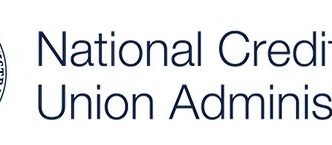CUNA is looking ahead to regulation changes for the coming year, which marks not only the start of a new decade, but the effective date of several important rules for credit unions. One rule making no longer belongs on the below list, NCUA agreed at its December board meeting to delay implementation of its risk-based capital rule to Jan. 1, 2022.
Effective Jan. 1, the Consumer Financial Protection Bureau (CFPB) officially extends the reporting threshold of 500 open-end lines of credit under the Home Mortgage Disclosure Act to Jan. 1, 2022. The temporary threshold was scheduled to expire Jan. 1, 2020.
For data collection years 2020 and 2021, financial institutions that originated fewer than 500 open-end lines of credit in either of the two preceding calendar years will not need to collect and report data with respect to open-end lines of credit.
NCUA’s revision to its Interpretive Ruling and Policy Statement (IRPS) regarding statutory prohibitions, also known as NCUA’s “second chance” proposal becomes effective Jan. 2.
The changes expand the list of criminal offenses by a prospective credit union employee that do not require approval by the NCUA Board.
Specifically, the IRPS does not require an application for:
- Certain insufficient funds checks;
- Small dollar simple theft;
- False identification;
- Simple drug possession; and
- Isolated minor offenses committed by covered persons as young adults.
NCUA program offices will process, review and act upon credit union-sponsored consent applications and the board will retain authority to decide on individual applications.
The Consumer Financial Protection Bureau (CFPB) and other agencies have also set thresholds for certain regulations in 2020, including:
- Exemption for loans from special appraisal requirements for higher-priced mortgage loans will increase to $27,200, effective Jan. 1. This is based on the annual percentage increase in the Consumer Price Index for Urban Wage Earners and Clerical Workers (CPI-W) as of June 1, 2019; and
- The protections of Regulations Z and M in 2020 will generally apply to consumer credit transactions and consumer leases of $58,300 or less in 2020. This does not apply to private education loans and loans secured by real property, which are subject to the Truth In Lending Act regardless of loan amount.
In addition to the CompBlog, CUNA’s Compliance Community contains discussion boards and a number of other resources for credit union compliance professionals around the country.






